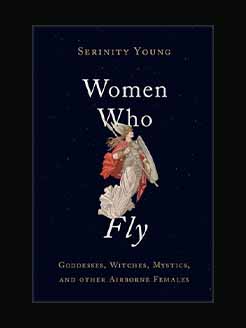Published in 2004
288 pages
Patricia Fara is a historian of science at the University of Cambridge. She is a graduate of the University of Oxford and did her PhD at the University of London. She is a former Fellow of Darwin College and is currently a Fellow of Clare College where she is Senior Tutor and Tutor for graduate students. Fara is also a research associate and lecturer in the Department of History and Philosophy of Science. Fara is author of numerous popular books on the history of science and has been a guest on BBC Radio 4’s science and history discussion series, In Our Time. She began her academic career as a physicist but returned to graduate studies as a mature student to specialise in History and Philosophy of Science, completing her PhD thesis at Imperial College, London in 1993.
Her areas of particular academic interest include the role of portraiture and art in the history of science, science in the 18th century England during the Enlightenment and the role of women in science. She has written and co-authored a number of books for children on science. Fara is also a reviewer of books on history of science.
What is this book about?
“Had God intended Women merely as a finer sort of cattle, he would not have made them reasonable.” Writing in 1673, Bathsua Makin was one of the first women to insist that girls should receive a scientific education. Despite the efforts of Makin and her successors, women were excluded from universities until the end of the 19th century, yet they found other ways to participate in science. Taking a fresh look at history, Patricia Fara investigates how women contributed to scientific progress. As well as collaborating in home-based research, women corresponded with renowned scholars and simplified important texts. Throughout this work, Fara shows how they played essential roles in work frequently attributed to their husbands or fathers. Patricia Fara lectures on at Cambridge University. She is the author of the highly praised work Newton: The Making of Genius.
helpful review from Alexandra from goodreads:
Pandora in breeches is an abomination. Pandora is already a problem: the first woman, in Greek mythology, whose existence brings all sorts of problems to the (male) world. But Pandora in breeches means that Pandora is also trying to take over the male world. In this book, Patricia Fara delves into the myth of the lone male scientific genius and exposes it as just that – a myth. While refusing the suggestion that Hypatia and Katherine Johnson could have been at all comfortable sitting next to each other at a dinner party, Fara reclaims the existence of women in scientific endeavour. She does this by taking several Lone Genius men (Descartes, Linnaeus, Lavoisier, Newton…) and examining the role that women played in their scientific lives. In some cases, this is domestically: when science is being done in the home, wives and sisters and household staff get drawn into the science almost automatically. In other cases, it is through correspondence, or through a woman’s own writing that is picked up and expanded on by a man because the woman wasn’t allowed to present her ideas in a public forum. Fara has surely only scratched the surface of the ways in which women contributed to science in this period (and, as she points out, also the male labourers who constructed equipment and so on).







